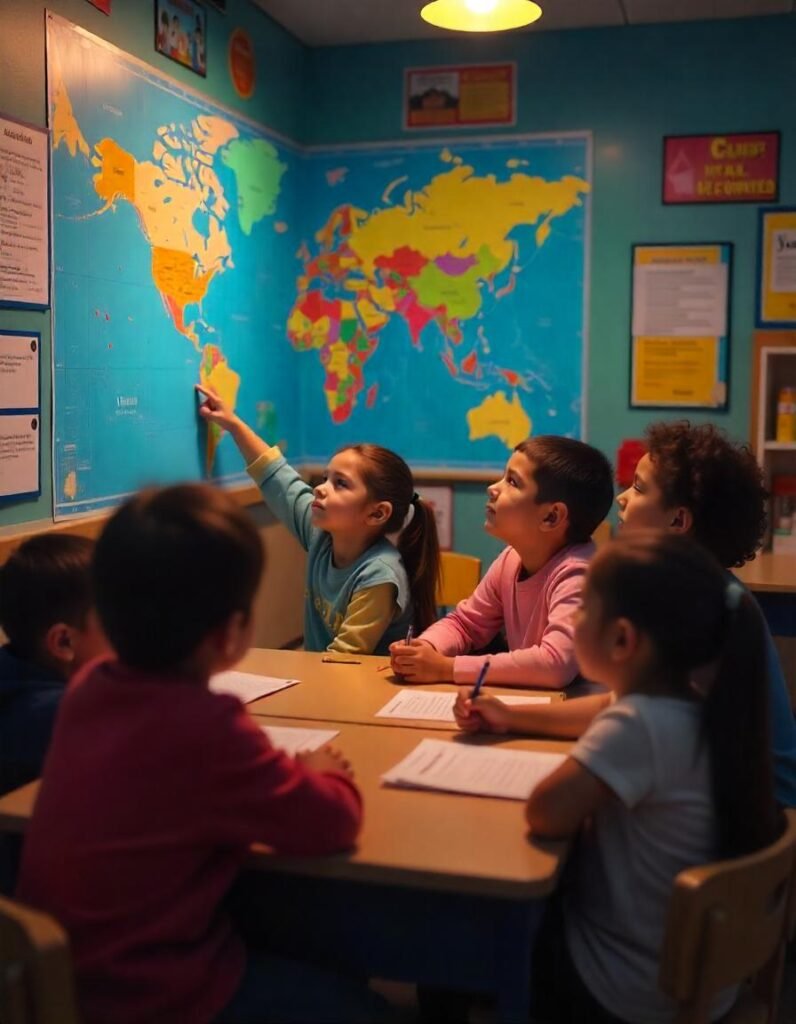Holistic development in early childhood is a comprehensive approach to nurturing a child’s growth in multiple dimensions, including physical, emotional, social, cognitive, and spiritual aspects. It plays a crucial role in building a strong foundation for lifelong learning, adaptability, and overall well-being.
Understanding Holistic Development in Early Childhood
Holistic development involves fostering a child’s overall growth, integrating various developmental areas to ensure a balanced and well-rounded upbringing. Unlike traditional approaches that might focus solely on academic or physical growth, holistic development addresses all aspects of a child’s life, aiming for harmony and balance.
Core Dimensions of Holistic Development
Physical Development
Physical development encompasses the growth and strengthening of a child’s body. It involves the development of motor skills, physical health, and fitness. Activities such as play, exercise, and healthy eating contribute significantly to this dimension.
Emotional Development
Emotional development focuses on a child’s ability to understand, express, and manage their emotions. This includes developing self-awareness, empathy, and resilience. Encouraging emotional intelligence from an early age helps children navigate social interactions and cope with challenges.
Social Development
Social development is about building the skills necessary for interacting with others. This includes communication, teamwork, and empathy. Activities that foster sharing, cooperation, and conflict resolution are essential for developing healthy social relationships.
Cognitive Development
Cognitive development relates to a child’s intellectual growth, including thinking, problem-solving, and understanding the world. It is nurtured through activities that stimulate curiosity, creativity, and critical thinking.
Spiritual Development
Spiritual development, though often overlooked, involves fostering a sense of purpose, values, and connectedness. It helps children develop a deeper understanding of themselves and their place in the world, contributing to inner peace and ethical grounding.
The Role of Play in Holistic Development
Play is an essential element of holistic development. It serves as a natural way for children to explore, learn, and develop various skills. Play-based learning supports cognitive, social, emotional, and physical growth, allowing children to engage with their environment in meaningful ways.
The Importance of Early Intervention
Early intervention is crucial in identifying and addressing potential developmental delays. Providing support and resources at an early stage can significantly improve outcomes for children, ensuring they achieve their full potential across all dimensions of development.
Parental Involvement in Holistic Development
Parents play a pivotal role in their child’s holistic development. Their involvement can provide consistency, support, and encouragement, which are critical for a child’s growth.
Creating a Nurturing Environment
A supportive home environment is fundamental for holistic development. Parents can foster this by setting routines, encouraging healthy habits, and providing opportunities for learning and exploration.
Active Participation and Guidance
Parents’ active participation in their child’s activities, whether through play, education, or daily routines, strengthens the bond and reinforces the developmental process. Providing guidance and positive reinforcement helps build confidence and independence.
Practical Strategies for Supporting Holistic Development
Encourage Play-Based Learning
Integrating play into daily routines can stimulate multiple areas of development. Simple activities like building blocks, storytelling, and outdoor play encourage creativity, problem-solving, and social skills.
Promote Healthy Lifestyle Habits
Ensuring that children have a balanced diet, regular physical activity, and adequate rest supports their physical and cognitive development. These habits lay the groundwork for lifelong health and well-being.
Foster Emotional Intelligence
Helping children recognize and express their emotions is crucial. Practices such as open communication, empathy, and mindfulness exercises can enhance emotional intelligence and resilience.
Enhance Social Skills
Encouraging group activities, cooperative games, and role-playing can help children develop essential social skills. Teaching them about empathy, kindness, and effective communication builds strong interpersonal abilities.
Stimulate Cognitive Development
Providing age-appropriate challenges, puzzles, and problem-solving activities can nurture cognitive growth. Encouraging curiosity and exploration helps children develop critical thinking and intellectual capabilities.
Challenges and Solutions in Holistic Development
Balancing Multiple Developmental Areas
Balancing physical, emotional, social, cognitive, and spiritual development can be challenging. Parents and educators can address this by integrating activities that simultaneously target multiple areas, such as group sports or arts and crafts.
Addressing Individual Needs
Every child is unique, and their developmental needs can vary. Tailoring activities and support to each child’s strengths and weaknesses ensures a more effective approach to holistic development.
Overcoming Environmental and Social Barriers
External factors like socio-economic status, access to resources, and community support can impact holistic development. Collaborating with community resources, schools, and support groups can help mitigate these challenges.
Long-Term Benefits of Holistic Development
Holistic development prepares children for future success by providing a well-rounded foundation. The benefits extend beyond childhood, impacting academic achievements, career success, personal relationships, and overall well-being.
Enhanced Learning and Adaptability
Children who experience holistic development are better equipped to handle academic and life challenges. Their ability to think critically, adapt to new situations, and collaborate with others enhances their learning experiences and future adaptability.
Stronger Emotional and Social Skills
Emotional intelligence and social skills developed early on contribute to healthier relationships and effective communication. These skills are crucial for personal and professional success throughout life.
Better Health and Well-Being
Holistic development promotes a healthy lifestyle, emotional balance, and mental well-being. Children who develop these habits early are more likely to maintain them into adulthood, leading to a healthier, more fulfilling life.
Conclusion
Holistic development in early childhood is essential for nurturing well-rounded, resilient, and capable individuals. By focusing on all aspects of growth—physical, emotional, social, cognitive, and spiritual—we can ensure that children are well-prepared for the complexities of life. Parents, educators, and communities all play vital roles in supporting this comprehensive development, paving the way for a brighter future for every child.

